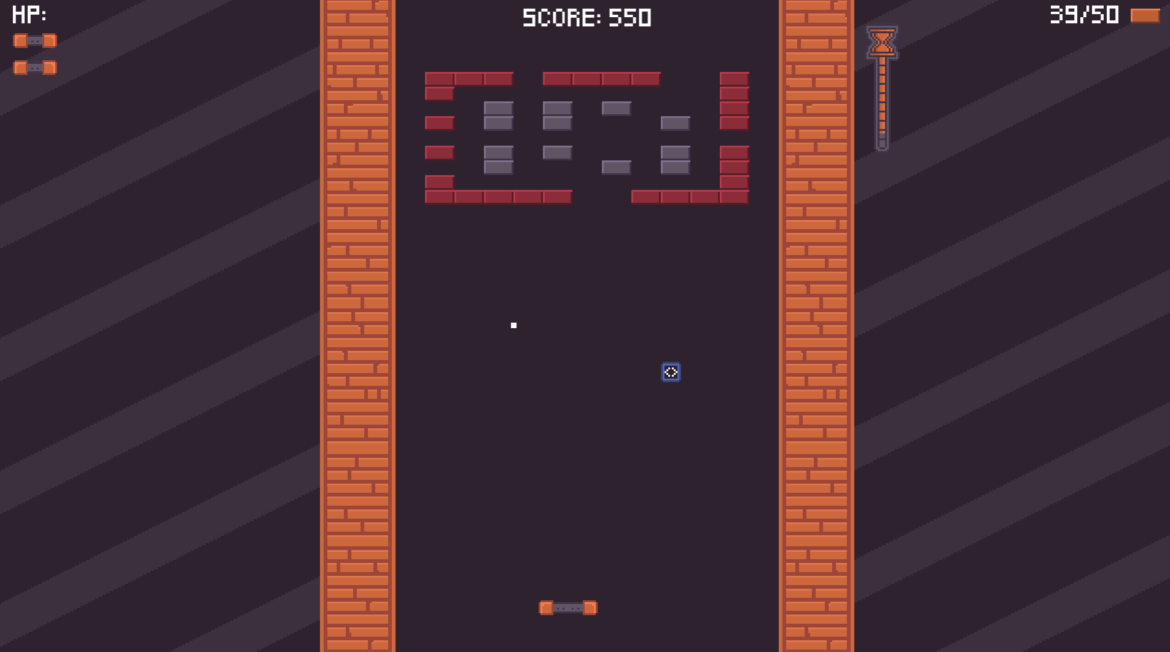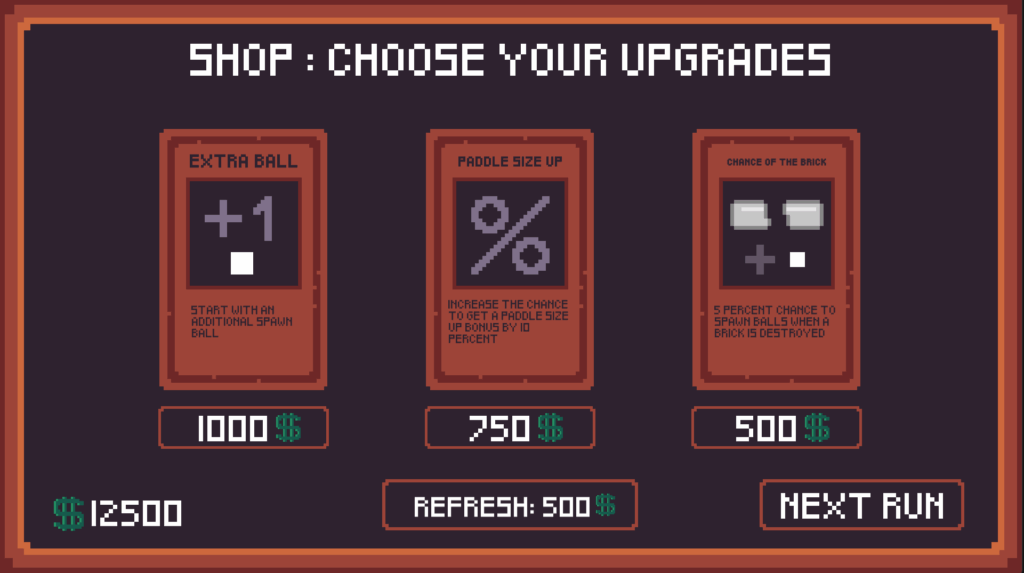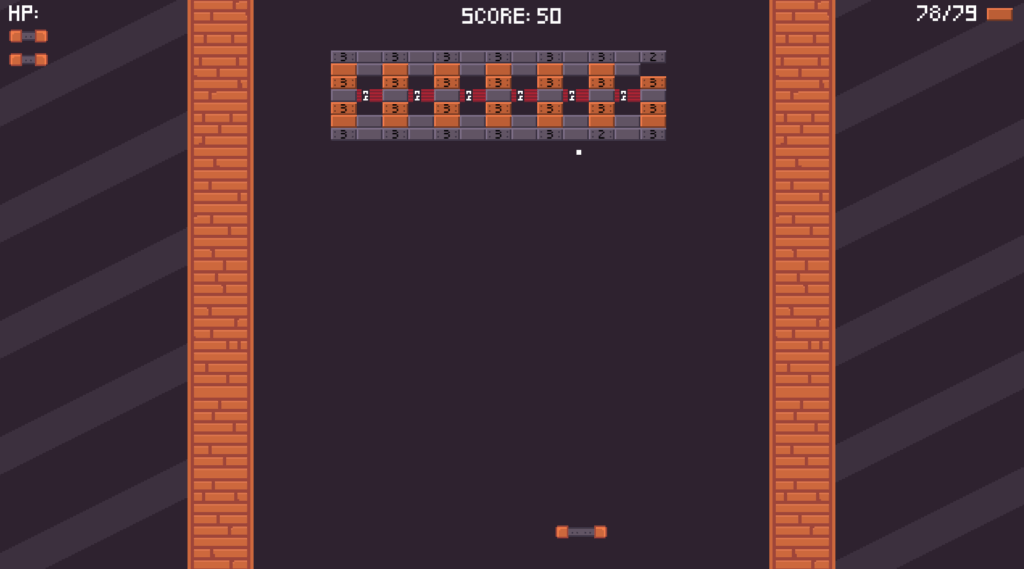
About
Breach started as a one-week Game Jam challenge: rebuild Breakout from scratch — but faster, harder, and smarter.
What began as a small arcade prototype evolved into a full roguelike reinterpretation coded in C++ with SFML, where every hit counts, and every second matters.
You face a collapsing field of bricks.
You must destroy them all before the timer runs out — while keeping your remaining balls alive.
Each victory brings you to a shop where you can buy cards to upgrade your abilities, unlocking new passives and actives that drastically change your next run.
🎮 Playable Demo: Itch.io – Breach
📂 Source Code: Available on request
Project Info
Role: Solo Developer (C++ / SFML)
Time Frame: Late Summer 2025 – Ongoing
Engine / Library: C++ & SFML
Development Period: 1-week Game Jam → Continued Development
Platform: PC
Status: Playable Demo (In Development)
🎮 Introduction
Breach blends arcade reflexes with roguelike progression.
Every run is a short, intense challenge: clear all the bricks before time runs out, or die trying.
After each victory, you’ll enter a card shop that lets you shape your next attempt. Choose between passive buffs and active powers, and experiment with wild combinations.
Each new card unlocks new synergies – some make you faster, others multiply your balls, or even destroy random bricks. The more you play, the stronger (and more chaotic) your runs become.
🧠 Gameplay Systems
Core Loop
- Clear all bricks within the timer
- Avoid losing all balls
- Earn access to the shop
- Buy cards and prepare for the next stage
Card System
- Passive Cards: permanent boosts like
- +1 starting ball
- Automatically destroy last brick
- +20% paddle speed
- Active Cards: special cooldown abilities such as
- Spawn a new ball
- Instantly destroy a random brick

Power-Ups
Random drops during gameplay create unpredictable momentum:
- Double ball count (x2)
- +1 new ball
- Speed-up / slow-down
- Destroy random tile
- Extra life
Each power-up can synergize with cards, amplifying chaos and score potential.
Roguelike Progression
- Unlock new cards after certain milestones (e.g. first death unlocks a new card)
- Planned: earn currency between runs to purchase upgrades and meta-progression
🎨 Visual & Technical Design
Art Direction: Pixel-art with an industrial aesthetic
All 2D assets were handmade, accompanied by licensed music and sound effects.
Visual Effects
- Dynamic ball impact sparks
- Camera shake on explosions
- Break and particle animations for satisfying feedback

🧩 Technical Highlights
- QuadTree optimization to efficiently handle large numbers of bricks
- Clean OOP architecture with modular classes (Ball, Brick, Paddle, CardManager…)
- EventBus to handle card and power up system
- Scalable card system for rapid addition of new passives or actives
- Designed for smooth 60+ FPS performance in C++/SFML
📚 What I Learned
- Designing a modular C++ architecture that supports fast feature addition
- Implementing optimized physics systems with QuadTrees
- Balancing arcade pacing and roguelike progression
- Collecting and applying player feedback from live playtests
- Managing solo development: planning, iteration, and polish
💡 I’m especially proud of how organized and scalable the project became – each new card or mechanic can be added in minutes, keeping the system both robust and flexible.
🚀 Future Plans
- Add currency and meta-progression between runs
- Improve QuadTree dynamic updates for better performance
- Add new cards, special abilities, and visual polish
- Integrate Steam demo
